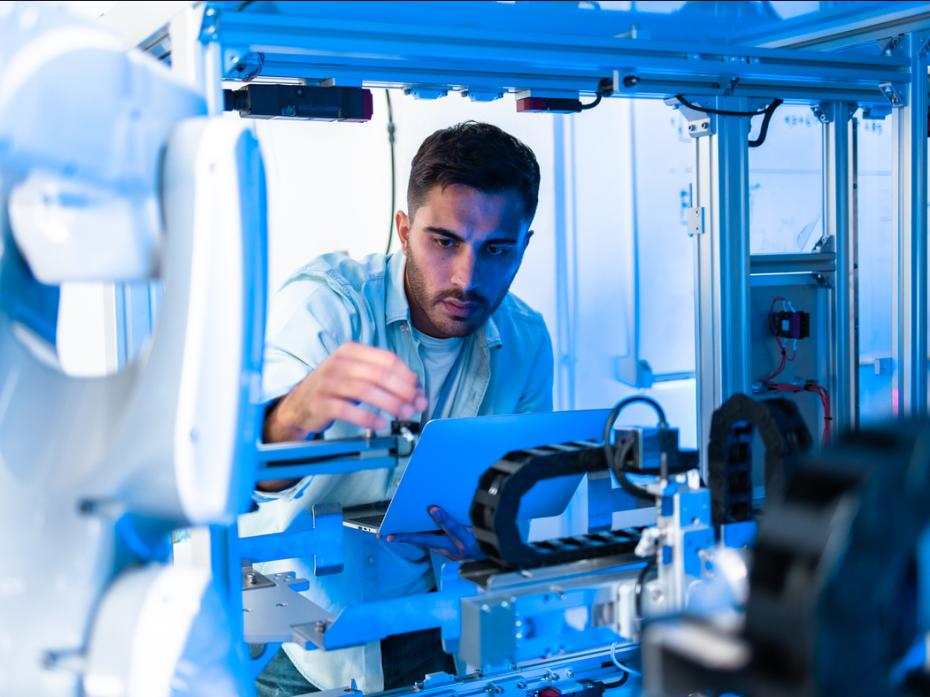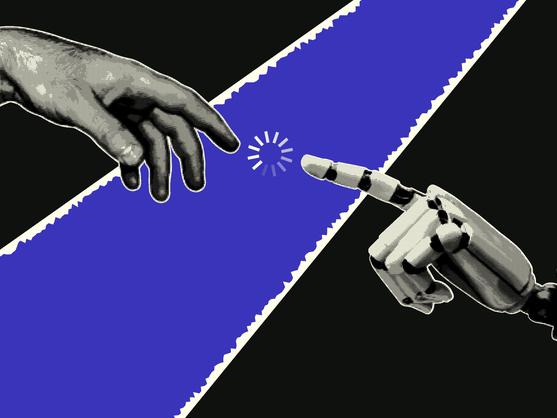Library teams have expertise that covers many areas of university practice – from systems and technical competence through procurement, project management and research practices to customer service and pedagogy.
There are many examples of libraries stepping up to take an institutional lead, making useful contributions and promoting good practice across areas where we are stakeholders – wherever the “ownership” of that issue finally rests. That moment came for us in 2023-24.
The pace of change was extremely rapid during the 2022-23 academic year owing to the development of large language models and Chat GPT’s release in November 2022. Almost overnight, social and traditional media were full of the inexorable rise of the machines. Predictions of social annihilation clashed with forecasts of yet another overhyped technological damp squib.
- THE Awards 2025: lessons from the stars of UK and Irish higher education
- The evolving role of the university library
- The library's role in digital education: content is still king
In universities, the impact was immediate. It quickly became apparent that this was a genie that would not get back into its bottle. Some were swift to condemn the use of generative artificial intelligence (GenAI) as a form of cheating, but others saw it as a positive contribution to the range of pedagogic and support tools.
Within the context of our university, we took a bottom-up approach, starting with open discussions. Our e-learning department set up a Teams site to facilitate debate and information sharing for anyone who was interested – or anyone who felt intimidated and wanted to learn more.
As professional and academic networks evolved their positions, both inside and outside the university, the learning was brought back to the team and discussed, useful reading was shared, conference presentations considered.
Within the library, however, we began to feel the lack of a policy framework to contain or direct these stimulating debates.
In the same way that university staff were facing uncertainty and confusion – albeit with strong pockets of excitement and enthusiasm – our student community shared the same range of emotions. From sector surveys and anecdotal evidence, we could see they were finding the new tools as immediately transformative as their parents and older siblings found the development of search engines and online encyclopedias. HEPI’s 2025 AI Survey reported that “the proportion of students using GenAI tools such as ChatGPT for assessments has jumped from 53 per cent last year to 88 per cent this year”. Only 12 per cent of their survey sample did not use AI in this way.
By the 2023-24 academic year, our service desks in the library increasingly encountered students who were terrified of inadvertently incurring penalties or being accused of academic misconduct. We also heard from students who were eager to make use of the technology, but needed guidance on what was appropriate.
Working with our colleagues in the AI team, we shaped a series of guides for students, covering appropriate use of GenAI. We made these available through the library’s website as well as through both stand-alone and embedded workshops.
Using a traffic-light system, the workshops developed an understanding of what was good use of GenAI – such as narrowing down a topic, summarising complex ideas or simplifying language; what was useful if handled with care, such as finding recommendations for resources, initial analysis of information and data or considering study design; and what was a definite no-no, such as writing whole essays or failing to check results.
All this was supported by practical opportunities to try to evaluate different GenAI tools. Students were amazed to see how the prejudices of the internet played out in GenAI responses, how GenAI systems often double down on hallucinated answers and how carefully constructed prompts deliver much more helpful results.
If students were unable to attend a full workshop, or just wanted a quick sense-check on a particular area of concern, we provided a full suite of support, available whenever it was needed. We created a website giving a framework and overview about the subject, including video tutorials with topics such as, “What do we mean by AI”, “Sparking ideas with AI” and “AI and misinformation”. For those who wanted to dig deeper, we also provided links to books on GenAI in our library collection.
At a time when guidance from the university was still embryonic, what we offered gave confidence and reassurance for students, as well as opening up discussions with teaching staff about where GenAI could be useful and where it might be a concern.
Our academic service librarians have developed their understanding of the issues and application of the technology to talk with confidence in all their workshops, to normalise the discussion and to point students not just to our own guidelines, but to the emerging guidance from the university as it has developed.
Our practices and support for the use of GenAI have matured over the past two years, and a more holistic, university-wide approach has developed from the individual centres of good practice.
In the library we remain corporately aligned, and focused on the university’s priorities of continuation and success. We continue to play our part in the development of the university’s overall GenAI policies and frameworks and offer guidance and workshops on the application of GenAI to specifically library areas of practice. But our early championing of a supportive framework for students has paid dividends in reducing the fear factor and tiding the university over until a more comprehensive suite of policies could work its way through the governance processes of formal policy.
Libraries can take this approach to a whole range of strategic issues, lending their expertise to kick-start projects, which can later become whole-university initiatives. Taking an early lead doesn’t mean expanding your empire, but being part of a whole university approach to improving the experience and outcomes of all our students.
Chris Porter is director of library and learning services at Birmingham Newman University.
The university’s library team was shortlisted in the Outstanding Library Team of the Year category in the Times Higher Education Awards 2025. The full list of nominees can be found here.
If you would like advice and insight from academics and university staff delivered direct to your inbox each week, sign up for the Campus newsletter.




comment